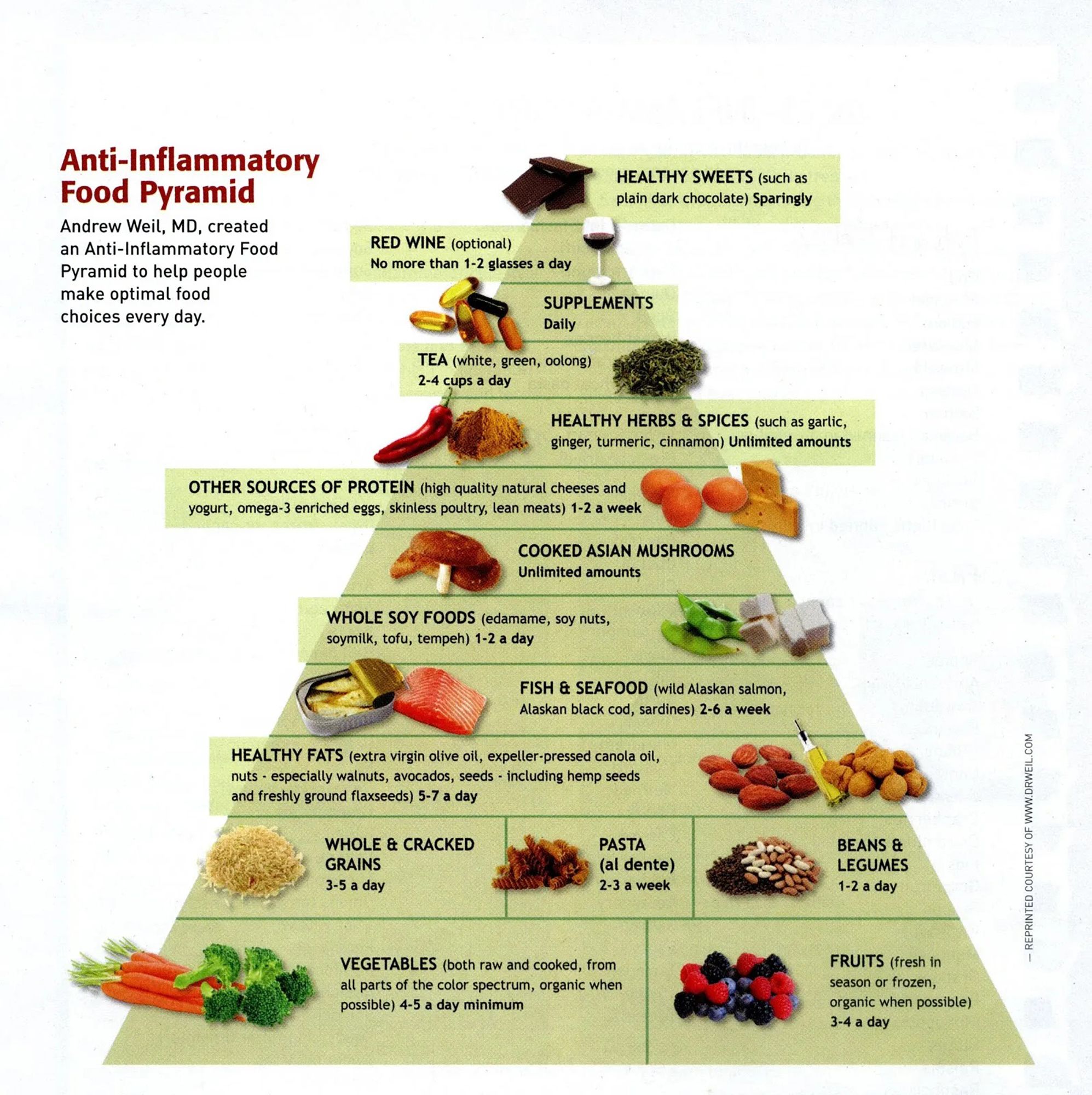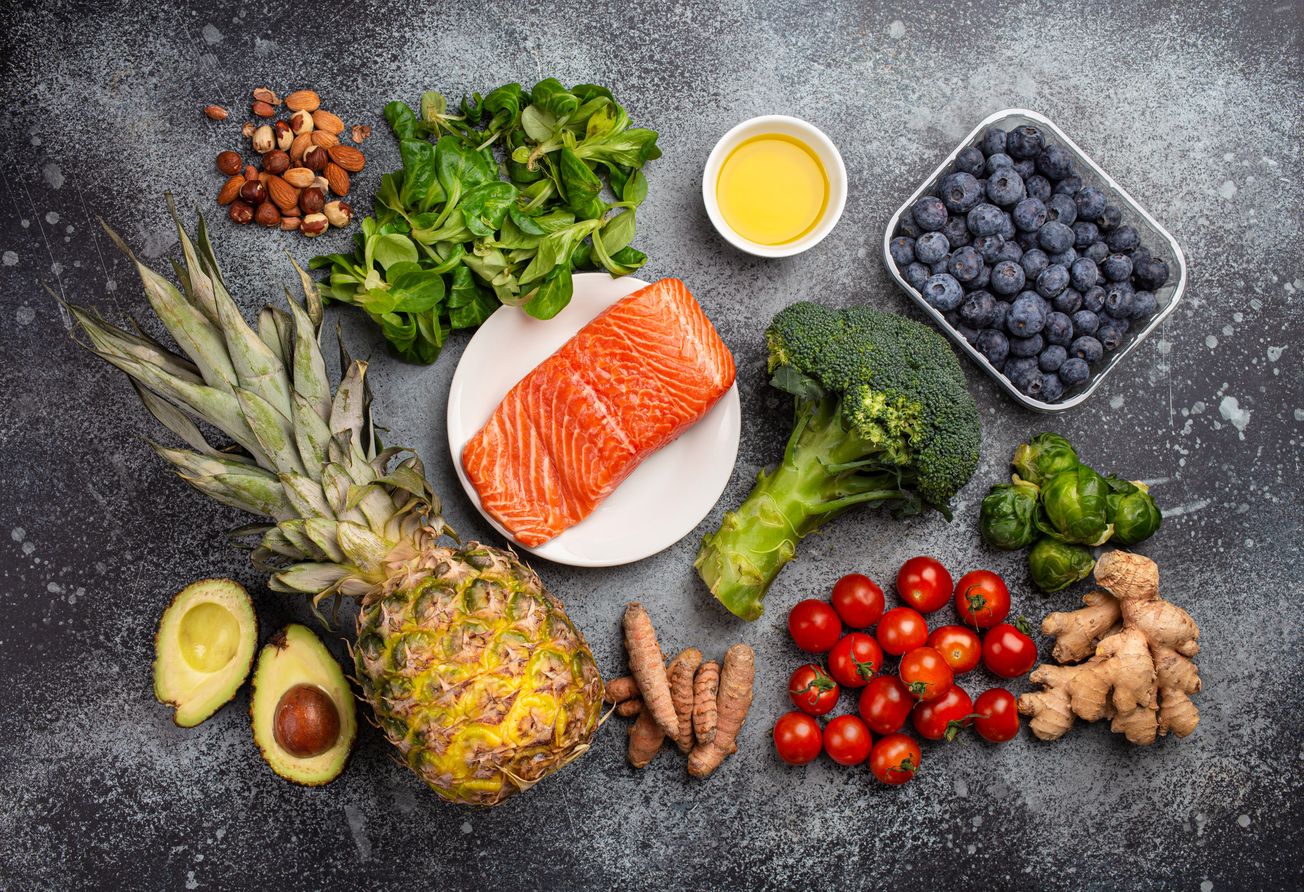By Robin Stoloff
“Let food be thy medicine, and let medicine be thy food.” This famous quote is often attributed to Hippocrates, who was known as the father of medicine. Although he lived more than 2,400 years ago, his research led him to believe that nutrition is one of the main tools of a doctor. How right he was. Today, we have solid evidence that what we eat affects our health both adversely and positively. Yet our diet is so much more than just calories in and calories out. It often boils down to one word – inflammation. An internet buzz word, it is a term used loosely in conversation, but what exactly is inflammation, and more importantly, how can we prevent it?
Inflammation is often compared to a fire. A small fire can keep us warm and be beneficial, but when the fire burns out of control, it can harm us. When we are injured or sick, our immune system sends out inflammatory white blood cells to start healing injured tissues. Chronic inflammation occurs when our body continues to send these cells, which attack healthy tissues and organs. In simple terms, chronic inflammation is an immune response that persists over months or even years.
Unlike acute inflammation, such as a wound that causes redness and swelling, chronic inflammation is much more difficult to diagnose. Body aches, fatigue, weight gain, insomnia, digestive issues and frequent infections are symptoms we often attribute to aging. Inflammation can even lead to mental health problems, such as depression and anxiety. Over time, it can damage healthy cells causing debilitating conditions such as arthritis, diabetes, cancer, asthma, Alzheimer’s disease, heart disease, and stroke.
Chronic inflammation is linked to several factors including insufficient sleep, stress, smoking, and lack of physical activity.
However, one of the biggest is what we eat. It is estimated that 60% of chronic diseases could be prevented by adopting a healthy diet.
An anti-inflammatory diet is unique to everyone. For instance, some people may tolerate gluten and dairy better than others. For that reason, it is important to recognize what works for you. However, there are general principles that should guide us.
One of the major culprits that can increase inflammation is refined sugar. Experts recommend cutting back or eliminating foods high in simple sugars such as sweet, baked goods, soda, and sports drinks. In addition, heavy alcohol consumption may contribute to systemic inflammation by interfering with our healthy gut bacteria.
Omega-6 fatty acids are found in most seed oils (soybean, corn and sunflower oil), processed foods and red meat. Both omega-3 and omega-6 fatty acids are essential nutrients, so we need some omega-6s in our diet, but they should be limited. The ratio of omega-3s should be greater than omega-6s. In the typical American diet, it is usually the other way around.
Trans fats, sometimes referred to as hydrogenated oils, should be eliminated. Foods that contain trans-fats may include margarine, deep-fried foods, and processed foods engineered to have a long shelf-life such as crackers and packaged foods.
Full-fat and non-fermented dairy may have a small effect on increasing inflammation, and people who have a sensitivity to dairy, may not tolerate it as well as others. Research shows fermented dairy such as cultured yogurt and some cheese may be beneficial in small amounts. They are included in the Mediterranean Diet in moderation.
There is conflicting research on eggs, one of our most versatile sources of protein, vitamin D and omega-3 fatty acids. Some studies show consuming eggs regularly can lead to an increased amount of swelling and joint pain. The yolks contain arachidonic acid, which could help trigger inflammation in the body. While it might not be easy to completely avoid eggs, we can pass on the yolks and simply use the egg whites.
So what should we eat? One of the most researched examples of an anti-inflammatory way of eating is the traditional Mediterranean diet. It is rich in fresh fruits and vegetables, whole grains and fiber, and legumes. It emphasizes nuts, seeds, and olive oil as sources of fat. It also includes a moderate consumption of fish and shellfish, white meat, eggs, and fermented dairy products (cheese and yogurt), and small amounts of sweets and red meat. Green tea and coffee have also been found to have an anti-inflammatory effect.
The internet is loaded with claims that certain foods reduce or create inflammation. However, it is important to keep in mind that adding or reducing a certain food misses the main point. Nutrition is just one piece of the anti-inflammatory puzzle. There is no miracle food that is going to cure chronic inflammation. To truly reduce inflammation, we must adopt a long-term, anti-inflammatory lifestyle.
Eat a healthy diet, be active most days of the week, get at least seven hours of sleep each night, manage stress and avoid harmful habits such as smoking or excessive drinking. Bottom line, an anti-inflammatory lifestyle is synonymous with a healthy lifestyle.
SIDE BAR
What to Eat
- Fiber. Bacteria in our guts metabolize fiber to decrease inflammatory processes and boost the immune system.
- Plant-based proteins. Nuts, seeds and legumes (beans, peas, lentils and soybeans) are great alternatives to meat and poultry. If you prefer soy, choose whole soy foods, such as edamame or tofu, instead of highly. processed foods like soy burgers, soy hot dogs and soy-based frozen meals.
- Colorful fruits and veggies. Aim for at least seven servings of non-starchy fruits and vegetables daily. Good examples include beets, berries, tomatoes, cherries, cauliflower, broccoli, onions and garlic. The more color, the better, since different colors supply different nutrients.
- Herbs and spices. Many spices have anti-inflammatory properties, including turmeric, ginger, basil, cinnamon, cayenne and oregano.
- Omega-3s. Omega-3s are heart-healthy, mood-boosting and anti-inflammatory. Good sources include salmon, tuna and sardines. You can also get omega-3s from plant sources, including walnuts, flax seeds, chia seeds and hemp seeds.
What to Restrict
- Sugar. Refined foods, such as cookies, cakes, white bread and sweets, increase blood sugar levels and may lead to bacterial overgrowth in the gut, which in turn causes inflammation.
- Saturated and trans fat. Saturated fats and trans fats linger in the body and release inflammatory proteins into the bloodstream. Meat, dairy products, baked goods, butter and margarine are the usual suspects.
- Refined grains. The American food supply emphasizes refined grains over nutrient-rich whole grains. Even breads that are labeled “wheat” are often stripped of nutrients and made with only enriched grains.
- Meat. The saturated fat in meat can turn on inflammatory processes. Can’t resist? Choose lean, grass-fed organic meat to reduce environmental toxins.
- Grilled or charred foods. Foods that are grilled have more pro-inflammatory end products. This is especially true of fatty cuts of meat. Instead of firing up the barbeque to grill or blacken your favorite foods, turn to your stovetop or oven. Broiling, steaming and baking are all good options.
(Courtesy HENRY FORD HEALTH )










